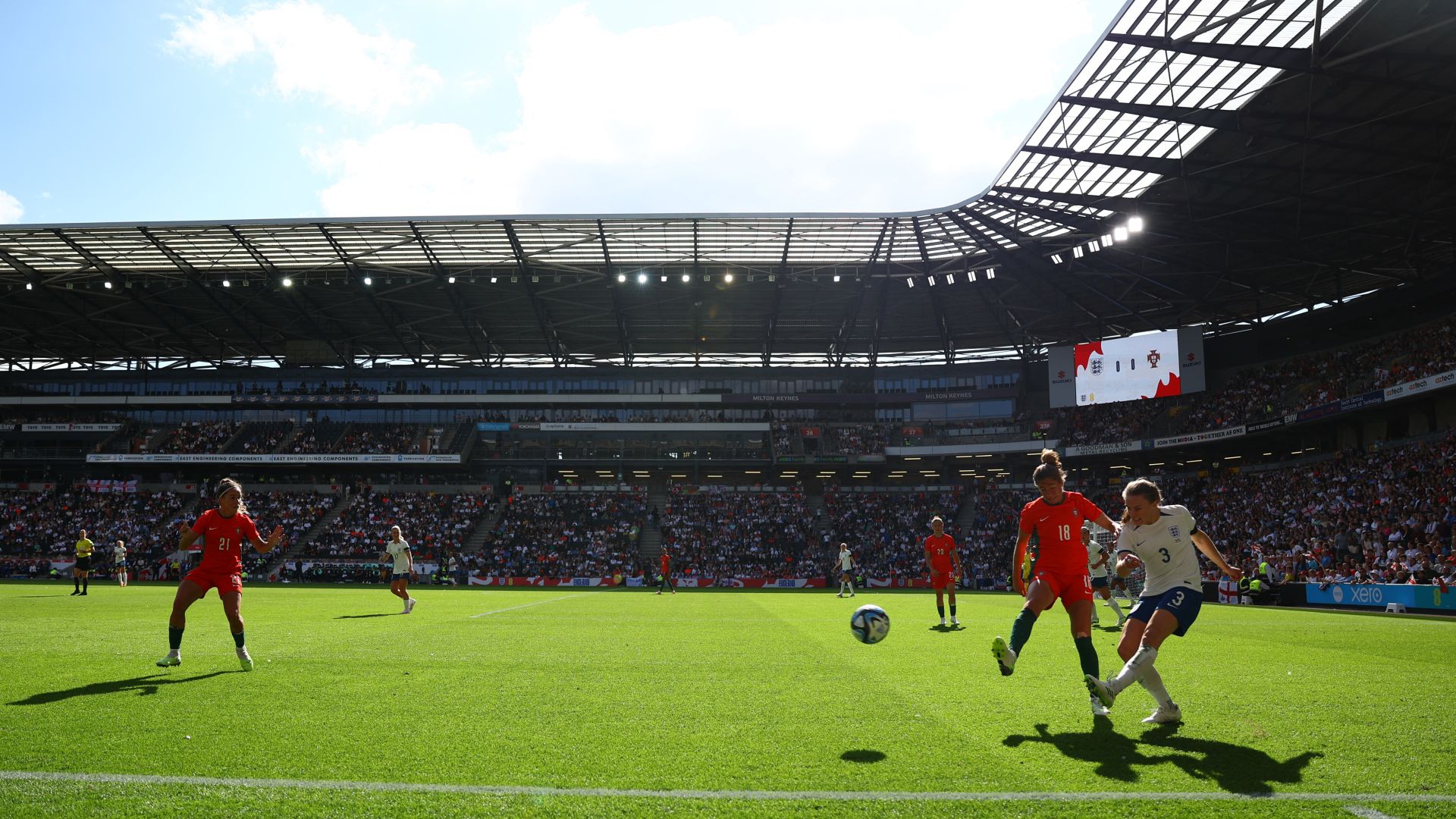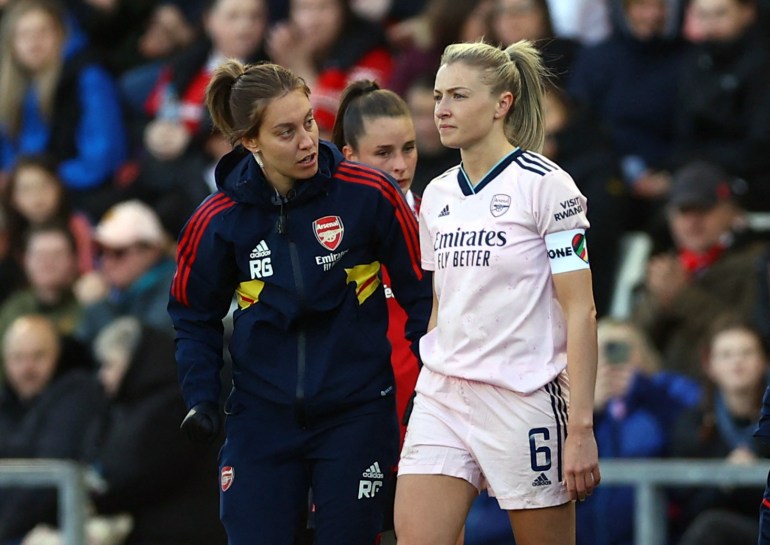'The ACL club'
Inside the injury crisis plaguing women's football

It happened in an instant, but Leah Williamson seemed to know just how serious it was, the second she fell to the pitch.
The Arsenal stalwart and England women's national football team captain was challenging for a ball in midfield during a match against Manchester United in April when she went down grimacing.
Waving her right arm in the air to alert her team's doctors, Williamson slapped the pitch before laying her head down between her arms, dejected. "This does not look good for the England skipper," a BBC commentator said on the live broadcast.
That same day, more than 300km (200 miles) away in Edinburgh, a similar scene interrupted the final moments of a Scottish Women's Premier League match as Hearts forward Katie Rood went down injured in the 82nd minute.
Williamson and Rood would later confirm what many observers had feared: they were the latest footballers hit by a knee injury that has plagued the women's game for decades.

"Unfortunately the World Cup and Champions League dream is over for me and everyone will think that's the main focus, but it's the day to day of what I'm about to go through that is the most draining of my thoughts," Williamson wrote on social media on April 21.
"I'm sad to say that I've joined the ever-growing ACL club," Rood, a New Zealand international player, also later posted on Instagram.
ACL injuries have dominated headlines ahead of the FIFA Women's World Cup, which kicks off in Australia and New Zealand on July 20, as Williamson, Rood, and scores of other top women footballers – from the Netherlands' Vivianne Miedema to Canadian Janine Beckie, Marie-Antoinette Katoto of France and England's Beth Mead – have been sidelined.
While both male and female athletes can suffer ACL injuries, research has shown that female athletes are at greater risk than their male counterparts – as much as eight times higher, according to some experts. Male athletes also return to sport more quickly than their female counterparts.
The situation has raised questions about why so many top female footballers suffer ACL injuries. It has also spurred a debate about equity in the sport, pushing players to urgently call for greater research and access to the same level of resources and support to cope with the injury as their male counterparts.
"I think the amount of ACL injuries in professional women's soccer over the last two years has just been shocking," US national team forward Christen Press, who has undergone three surgeries after she tore her ACL last year, told ESPN in May.
And according to Press, who was not named in the US World Cup squad amid her rehabilitation, the response would be very different if a similar number of male football stars were being hampered in the same way.
"If this happened on the men's side, we would have immediately seen a reaction of, 'How are we going to solve this and figure this out and make sure that these players are going to be available at the biggest moments of their career?'"